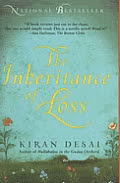Titus Andronicus by William Shakespeare at the Shakespeare Theater
It is hard to imagine Shakespeare as a young man. We think of the great Shakespeare plays, and we do not think of him as a young man just getting started in the theater, just learning his craft, just beginning to write plays. This play, Titus Andronicus, was one of Shakespeare's first plays, written sometime between 1587 and 1592. He was only in his mid-twenties. Plays that were popular in London at that time were horror plays, much like horror movies of today. It is easy to imagine the young Shakespeare, in his mid-twenties, deciding to write a horror play, filled with lurid violence and gore and much like two plays that were very popular at that time, Marlowe's Tamburlaine and Thomas Kyd's The Spanish Tragedy. Undoubtedly, the young Shakespeare desired to become successful and decided to write a play like other successful plays. In Titus Andronicus, Shakespeare one-upped other playwrights. His play was even bloodier than theirs. And it was very successful.
Although Shakespeare's later plays were based on historical events or historical figures, this play was purely fictional. The play refers to historical Rome, but the figures in the play and the events in the play were fictional. However, it is interesting that Shakespeare had great knowledge of ancient Rome and was able to base this play and later plays on that period. It is also interesting to me that the London audiences -- mostly men -- related to those historical references.
I was expecting to be revolted by the blood and gore of the play, but I found that I was not. I was fascinated by the play itself. I was fascinated by a young man writing this play, both to entertain and to be a successful business venture. I found it not sad or depressing, but comical, much like one feels at a horror movie. The purpose was to entertain, and this play was entertaining. It turned out to be one of Shakespeare's most successful plays.
Tuesday, May 15, 2007
Monday, May 14, 2007
The Good Husband of Zebra Drive, Alexander McCall Smith

The Good Husband of Zebra Drive by Alexander McCall Smith
Like worn house slippers, the books about Precious Ramotswe of the No. 1 Ladies' Dectective Agency make one feel comfortable. Precious is indeed precious. Her keen observations of life are equally useful in solving the cases that confront her and in her interpersonal relationships. She understands the weaknesses of people, and she forgives them for those weaknesses. She practices love, and she teaches love. Always the solutions to relationships and to her cases return to her observations about life and love, and almost always relationships and cases end happily. The beauty of the simple life of her beloved Botswana adds to the beauty of the message that she conveys, a message of love and hope. These books are written in a simple way, emphasizing the simplicity of the setting and the message. While not great literature, these books make one feel comfortable and satisfied and happy. They are wonderful little books, and I never grow tired of them.
Wednesday, May 09, 2007
The Inheritance of Loss, Kiran Desai

The Inheritance of Loss by Kiran Desai.
Although this book is the 2006 winner of the Man Booker Prize, it receives only 3.5 stars from Amazon reviewers, many of whom find it to be well written, but with little plot. Indeed, many reviewers find the book boring, some to the point of not being able to finish it.
As I have written before, it seems that although some writers are gifted with words and gifted at capturing the descriptions of people or events, they have difficulty imagining great stories. Kiran Desai is a gifted writer. Her descriptions are far more elegant than those of most writers. Indeed, the elegance of her descriptions is almost mesmerizing. However, her story lacks interest. Her characters seem to drift and her story drifts. It seems that the title of the book is accurate -- the characters are a bunch of losers who go on losing right to the end of the book. Finally, we just don't care what happens to them. Surely she could have imagined more interesting characters and a more interesting story. The title of this book could just as easily have been, "Everyone's a Loser".
Tuesday, May 08, 2007
Coriolanus
Pride goeth before destruction, and an haughty spirit before a fall. (Proverbs 16:18)
Coriolanus by the Royal Shakespeare Company at the Kennedy Center. One of Shakespeare's great tragedies, Coriolanus depicts a man who could have had greatness, but lost everything because of a fatal character flaw. Coriolanus was filled with pride and a haughty spirit, which led to his downfall. The play was great, and the performance by the Royal Shakespeare Company was excellent. The one drawback was that the theater at the Kennedy Center is too large for good hearing. The smaller theater at the National Shakespeare Theater is always much better for Shakespeare plays. Still, an outstanding play, and as always, reading Asimov's Guide to Shakespeare before going to the play helped immensely to understand the nuances of the play.
Coriolanus by the Royal Shakespeare Company at the Kennedy Center. One of Shakespeare's great tragedies, Coriolanus depicts a man who could have had greatness, but lost everything because of a fatal character flaw. Coriolanus was filled with pride and a haughty spirit, which led to his downfall. The play was great, and the performance by the Royal Shakespeare Company was excellent. The one drawback was that the theater at the Kennedy Center is too large for good hearing. The smaller theater at the National Shakespeare Theater is always much better for Shakespeare plays. Still, an outstanding play, and as always, reading Asimov's Guide to Shakespeare before going to the play helped immensely to understand the nuances of the play.
Subscribe to:
Posts (Atom)